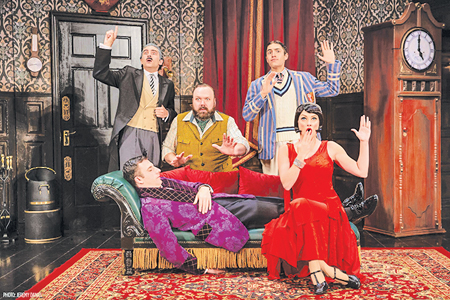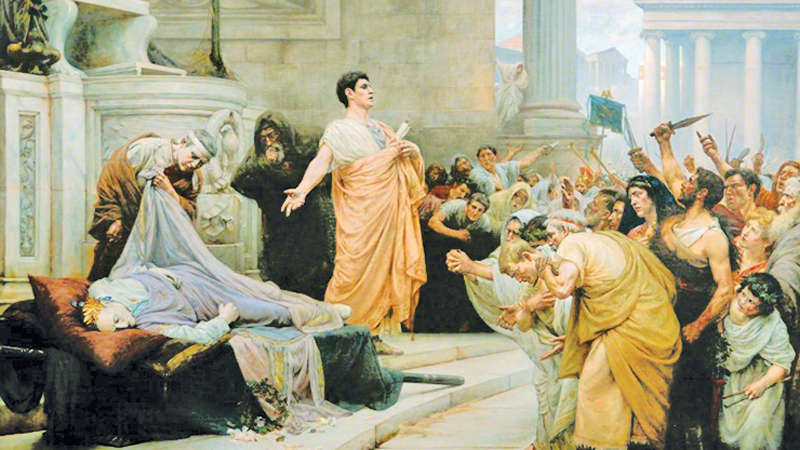 As the curtains rise on another World Theatre Day, we are reminded of the profound impact theatre has on our lives. Beyond the footlights and scripted dialogues, theatre is more than mere entertainment—it is a refuge, a place where we momentarily escape the burdens of reality.
As the curtains rise on another World Theatre Day, we are reminded of the profound impact theatre has on our lives. Beyond the footlights and scripted dialogues, theatre is more than mere entertainment—it is a refuge, a place where we momentarily escape the burdens of reality.
In a world that often feels like an unending performance, where we play our roles with practised precision, theatre offers a unique equilibrium. It is both an imitation of life and a retreat from its pressures, creating a space where the soul can breathe, the mind can wander, and the heart can heal.
 The world itself is a grand stage, populated by countless actors—each navigating personal narratives of triumph, struggle, joy, and sorrow. We wake each day to assume our roles, adjusting our expressions, concealing our true emotions, and delivering lines we may not always mean. Life, with its ceaseless demands, is an exhausting performance. Yet, theatre provides us with a different stage—one where we are not bound by societal expectations but are free to feel, explore, and dream.
The world itself is a grand stage, populated by countless actors—each navigating personal narratives of triumph, struggle, joy, and sorrow. We wake each day to assume our roles, adjusting our expressions, concealing our true emotions, and delivering lines we may not always mean. Life, with its ceaseless demands, is an exhausting performance. Yet, theatre provides us with a different stage—one where we are not bound by societal expectations but are free to feel, explore, and dream.
When we step into the hallowed darkness of a theatre, we surrender ourselves to another world. The stage, a microcosm of existence, reflects our experiences, yet it allows us to observe from a safe distance. Through the struggles of a tragic hero, the humour of a witty dialogue, or the beauty of a well-crafted monologue, we recognize fragments of ourselves. However, instead of drowning in our own reality, we become engrossed in the struggles and triumphs of characters who bear our burdens for a while.
One of theatre’s most powerful gifts is catharsis—a purging of emotions that leaves us lighter, more balanced, and strangely at peace. Aristotle, in his Poetics, described how tragedy allows the audience to release pent-up emotions, experiencing a cleansing of the soul. Modern theatre continues this tradition, whether through the laughter of a comedy, the melancholy of a drama, or the suspense of a thriller.
In the immersive realm of theatre, emotions that we suppress in our daily lives find expression. The silent struggles we carry are echoed on stage, validating our own experiences and reminding us that we are not alone. The intensity of a poignant performance can bring forth tears we have long held back, while the hilarity of a farcical scene allows us to laugh without restraint. In that moment, we let go of our anxieties, our stress, and our worries, losing ourselves in a story that is not our own—but, paradoxically, is deeply ours.
 While movies and television often provide passive entertainment, theatre demands active participation. It forces us to engage, to think, to feel. The raw, unfiltered energy of a live performance creates an intimate connection between the actors and the audience—one that cannot be replicated on a screen.
While movies and television often provide passive entertainment, theatre demands active participation. It forces us to engage, to think, to feel. The raw, unfiltered energy of a live performance creates an intimate connection between the actors and the audience—one that cannot be replicated on a screen.
This interaction fosters a sense of presence, pulling us away from the distractions of the digital world and immersing us in a shared human experience. For a few hours, we disconnect from the relentless pace of modern life and exist solely in the moment. This is where theatre restores balance: it does not erase reality but gives us the strength to return to it, renewed and more resilient.
Theatre also holds therapeutic value. Drama therapy, an established field of psychotherapy, uses theatrical techniques to help individuals process trauma, build confidence, and develop emotional intelligence.
Even for those who do not take the stage, being an audience member is itself a therapeutic act. The shared laughter, collective gasps, and moments of silent awe foster a sense of community, reminding us that we are part of something greater than ourselves. In a world where isolation and stress are prevalent, theatre brings us together, offering comfort in the company of strangers united by a single performance.
World Theatre Day is not merely a celebration of performance arts; it is a tribute to the sanctuary that theatre provides for the human spirit. It reminds us that amidst life’s chaos, there exists a place where we can find solace, laughter, and understanding.
As we navigate the grand theatre of life, let us not forget the importance of stepping back, sitting in the audience, and allowing ourselves to be swept away by the magic of the stage. Whether we laugh, cry, or simply revel in the beauty of a well-told story, theatre grants us a temporary reprieve—a moment to forget our worries, regain our balance, and embrace the sheer wonder of being alive.




